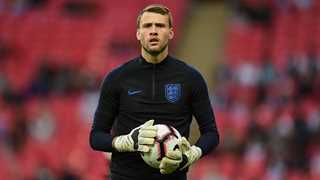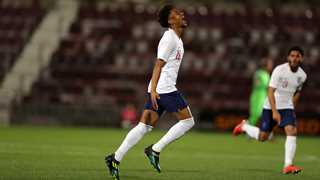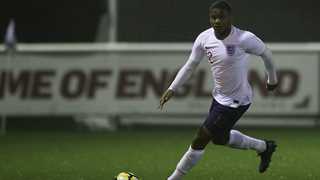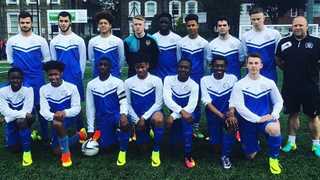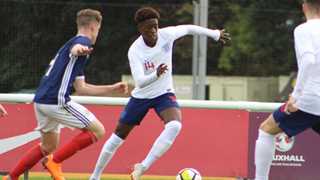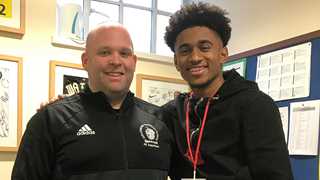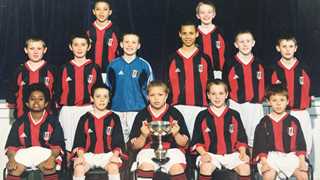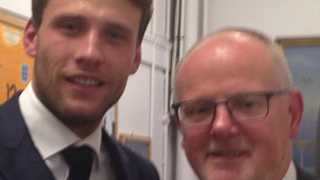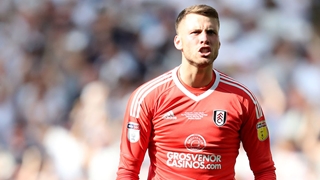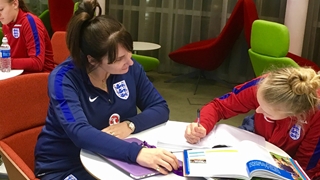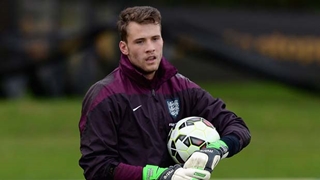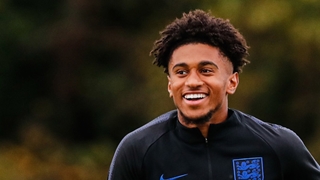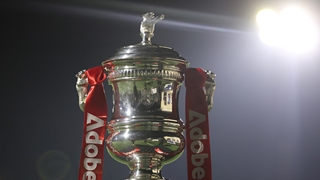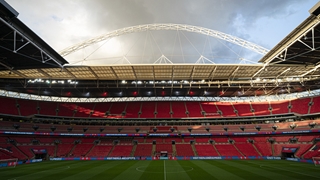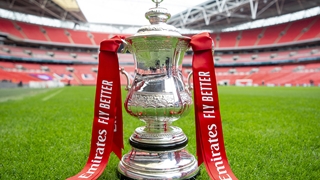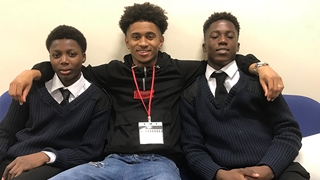
London Nautical School was founded in 1915 on the south bank of the River Thames on the back of the official report into the loss of the Titanic.
As the name and location suggests, its aim was to train young men from inner-city London to fulfill their potential, often in maritime pursuits.
But in recent years, it’s been on the football pitch and other sporting arenas where pupils from the ‘LNS’ have excelled to reach the top of their fields.
And there were three ex-pupils in residence at St. George’s Park with a variety of England squads earlier this month.
Fulham goalkeeper Marcus Bettinelli was with the senior squad, Arsenal’s on-loan Hoffenheim striker Reiss Nelson enjoyed his first call-up with the U21s and another young Gunner, Vontae Daley-Campbell was there with the U18s squad.
Behind them, current LNS pupil Malcolm Ebiowei is also at Arsenal and representing the Young Lions at U16 level, there’s Benfica and ex Charlton Athletic midfielder Jeremy Sarmiento who has played for the Young Lions and they also count former Spurs, Crystal Palace and current Toulouse player John Bostock among their alumni.
So how does a school situated in central London, with few facilities for football, continue to produce talent?
It’s about much more than the basics of the game itself and down to the power of a positive culture and strong mentoring system, as Nelson, Bettinelli and assistant headteacher Neil Atherton reveal…
Neil Atherton
To give it some background, we are a smaller than average boys’ state school, situated in the heart of London with a very wide catchment area which stretches across north, south and central areas of the city.
We have limited facilities, with no grass pitches and a playground smaller than most primary school facilities.
But the school has a unique record of developing sports talent and we have a tremendous sporting history, with a specialist sports status helping us gain a number of prestigious accolades over the years.
We’ve produced numerous talents in a variety of sports, with students past and present gaining representative honours at schoolboy and national level in rugby union, football, cricket, swimming and sailing with many former pupils now being professional sportsmen both at home and abroad.
Currently, the London Nautical School has 17 students signed at professional clubs, from U12 to U16 in and around London, with six U18 players at clubs with scholarships.
In Marcus Bettinelli (Senior), Reiss Nelson (U21s), Vontae Daley-Campbell (U18), Jeremy Sarmiento (U17) and Malcolm Ebiowei (U16), the school are proud to have five past and current pupils as England internationals and countless more who played for England at schoolboy level over the years.
There are 21 former students applying themselves as professional footballers around the UK and the world including ex England youth player John Bostock, who was actually in the same school team as Marcus Bettinelli.
And it’s great that so many of them still keep in touch with the school, such as Reiss who comes back to speak to and mentor current pupils like Malcolm about their conduct and behaviour.
Reiss Nelson
I was born near Elephant & Castle and grew up on the Aylesbury Estate in Walworth, so it could be pretty rough around there and trying to keep out of trouble.
At the start it was difficult, because I had a couple of options for schools with Westminster Academy and Walworth Academy both being closer to my home and where a lot of my friends were going to.
The London Nautical School was another option for me and is up near Waterloo and closer to the city, but my family wanted me to go there as they felt it might keep me out of trouble.
I knew Nautical was a sporty school and we had heard of some the good players who had come through there, like Johnny Bostock a few years earlier.
It was when I got there that I realised how good a school it was for me. For a lot of people, sport gave everyone at the school some focus and that’s so important.
But it’s not just a sports school. There’s a real balance and it’s not just football, there’s been boxers, rugby players, sailors and swimmers and academically, the school is doing well.
I remember Mr. McGregor, who was a top man and he helped produced a lot of talent from the school when he was there. He was the head of the PE department and he’d take a lot of the sessions.
And I still speak to Mr. Atherton now, he’s a very good man and would always help with things like day release to allow me to go to Arsenal and train in the afternoons and he was very flexible with me to help me progress in that way.
I think there’s six or seven internationals who have come through the school and there’s a couple of young players coming through now, a few of which are with Arsenal, so I still go back to visit the school when I have chance and try to help advise and guide some of them.
Marcus Bettinelli
For me, I only have fond memories of going to school there.
I grew up near Elephant & Castle, so not too far away from there. My mum and dad still live there and it’s an interesting place. It’s so diverse and there are a lot of distractions for a lot of people, so it’s not the easiest place to grow up if you get into the wrong crowd.
There was always a good mix of north and south London boys there and I just remember from growing up in the playground and playing football when it was always north v south, that there was that rivalry in everything.
And a lot of the lads who come through the school, tend to go on and do well in life, not just for lads playing football but for all sports.
I played in the same team as John Bostock and there are a few boxers and rugby players who have come through too so it’s a school that takes sport very seriously.
In central areas of London, sport provides a massive window for lads to express themselves and the school uses that to help push them forward and keep young boys concentrated on doing the right things and not straying onto the wrong path so that’s a great credit to everyone involved.
He’s retired now, but Mr. McGregor was the head of PE and science at the time and he was a real impetus behind it. He was a fantastic male figure for a lot of the pupils there and having that mentor from a young age is really important.
He would drive people to get the best out of them, not just on the football pitch, but in getting their schoolwork done as well.
And as we can see, they’re still producing players now so it’s a fantastic school and one that I’m proud to have been involved with.


